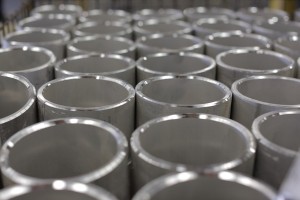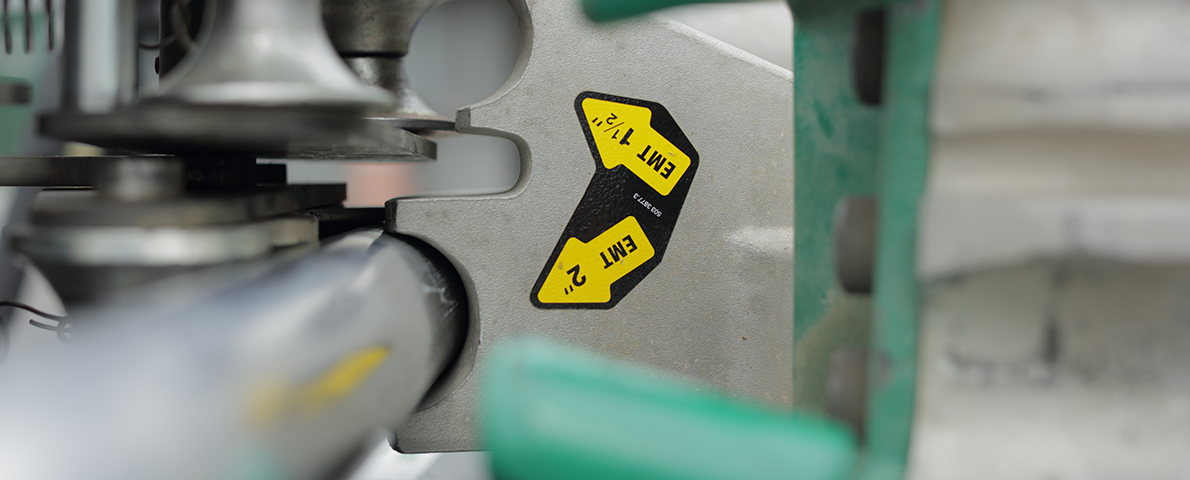Replacing steel with an aluminum solution is economically sound. Aluminum conduit offers significant cost savings and provides superior quality and performance. Check the current prices at American Conduit when looking for ways to control your project costs.

American Conduit is a product brand of Hydro, a fully integrated aluminum company that serves about 30,000 global customers. We have more than 35 years of experience in the production of aluminum RMC and aluminum EMT, making the products available to customers from coast to coast in a wide range of lengths and diameters to suit even your most complex applications.
About Metal Conduit
Electrical conduit is a path for either power or communication (low voltage) electrical wiring. It is usually tubular and made of metal (galvanized steel, aluminum, stainless steel) or non-metallic materials (plastics) and is either rigid or flexible. Conduit materials are typically chosen for their mechanical protection, corrosion resistance, and overall installation cost.
Rigid Metal Conduit (RMC) – RMC is a threaded, thick-walled tubing that is generally made of galvanized steel or aluminum. The conduit is connected together by screwing connectors to the main tubes. RMC protects the cables inside from damage, impact, and electromagnetic interference that can be harmful to sensitive equipment.
The main disadvantages to using rigid metal conduit is that its thick walls make it heavier than other types of conduit, requiring more effort to lift and move. Also, because all connections are threaded, more labor is required for installation.
To reduce the labor and expense, rigid aluminum conduit is an excellent substitute and can replace rigid steel in virtually all locations.
Aluminum conduit offers cost per foot savings of 10% to 20% versus rigid steel. It is also 1/3 the weight of steel and easier to maneuver, resulting in labor savings of 35% to 75% versus rigid steel.
Electrical Metallic Tubing (EMT) – EMT is an unthreaded, thin-walled tubing generally made of galvanized steel or aluminum. Often called conduit, EMT is technically considered tubing. It is connected using clamp-type fittings that slide onto the tubing and are secured with a set-screw.
Our PullEase aluminum EMT is popular in commercial and industrial applications because it is lighter and thinner than rigid metal conduit and is relatively easy to bend and cut. The patented internal ridged design allows for very easy wire pulling with no lubricant required. It can be installed outdoors, as long as all fittings, supports and fasteners are made of corrosion-resistant materials.
Aluminum EMT is an excellent substitute for steel EMT. It is UL listed and meets the same code requirements as steel. It provides weight savings when compared with steel, as well as cost savings in installation and maintenance. It can be cut and threaded readily and bent smoothly using normal field methods and tools.
Whether you decide that rigid aluminum conduit or aluminum EMT is right for your job, aluminum will provide excellent corrosion resistance because it naturally forms an impermeable natural protective oxide layer that prevents further oxidation. It also provides non-magnetic protection for sensitive environments, and does not spark like steel, reducing the risk of explosion.
To learn more about aluminum conduit prices and how switching to this durable material can reduce installation costs, enhance performance and improve safety on your project, call American Conduit at 1.800.334.6825. Our stocking warehouses hold nearly 1 million pounds of aluminum conduit product for immediate shipment to your job!

